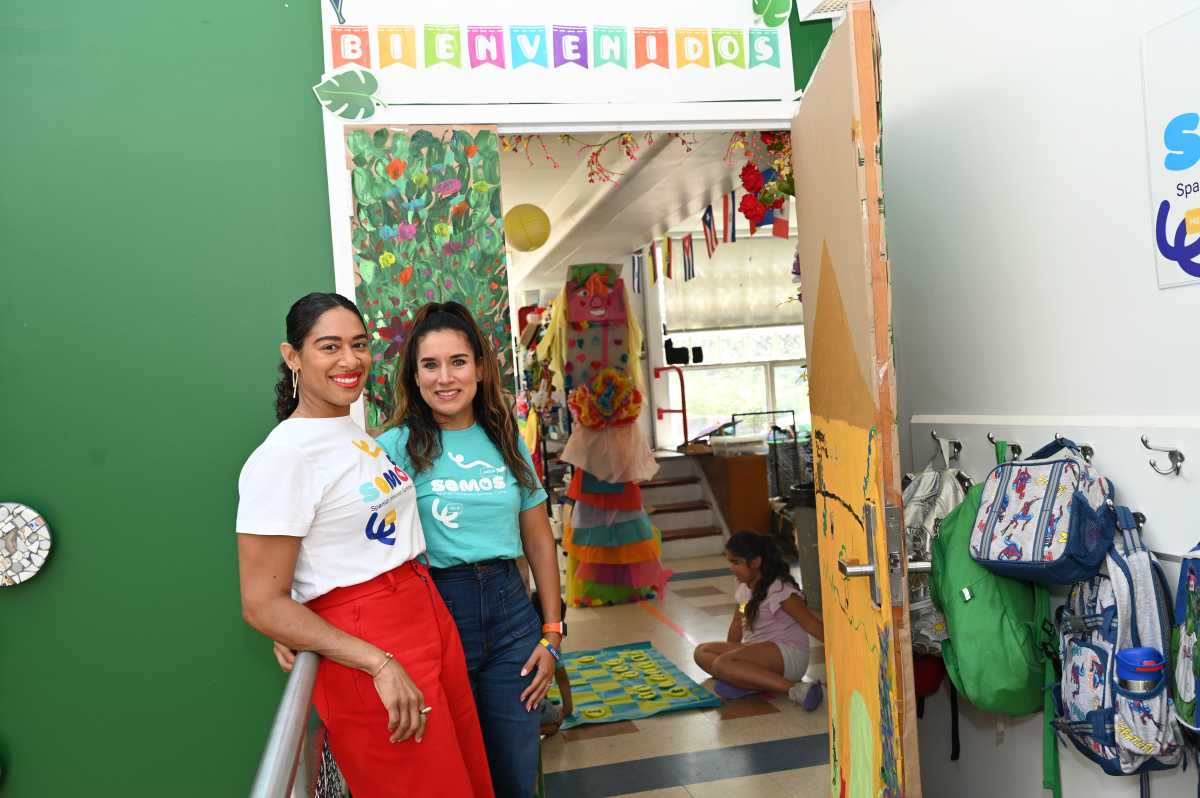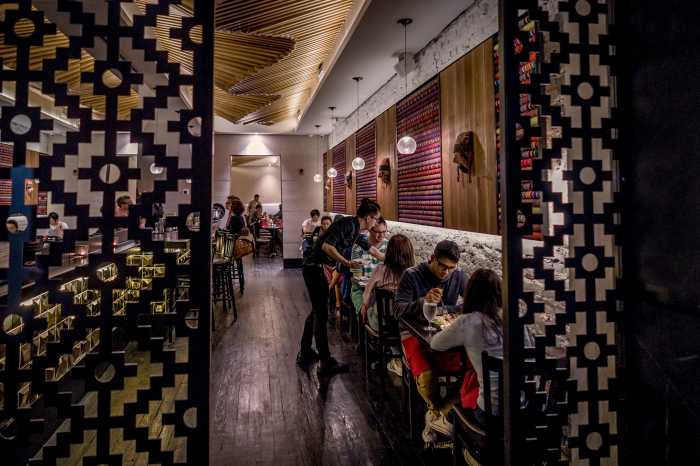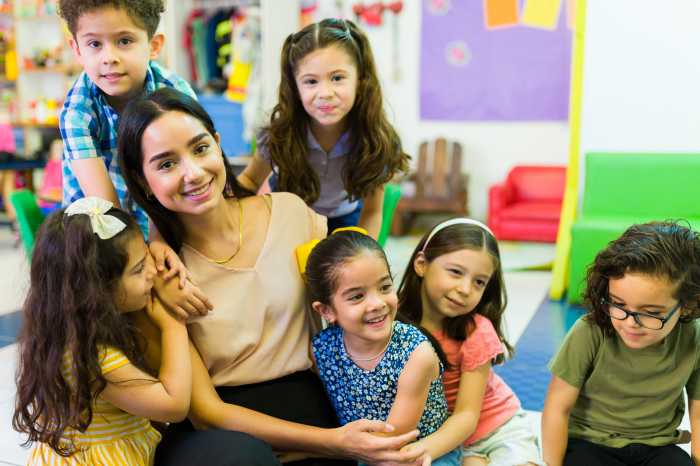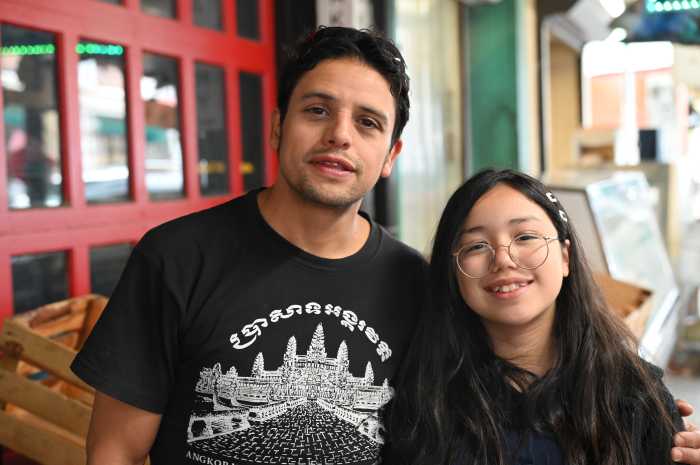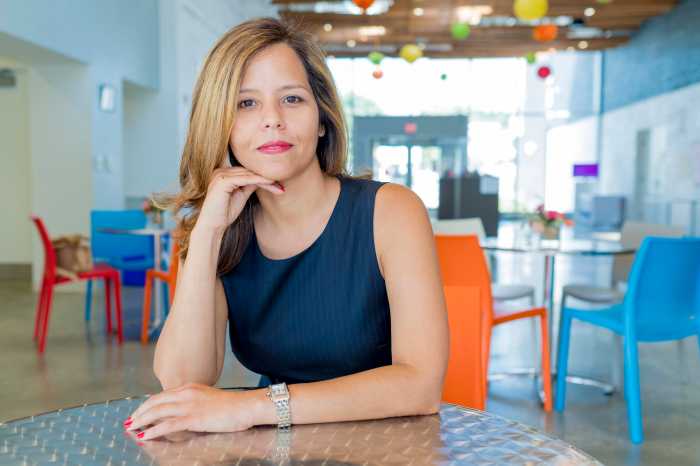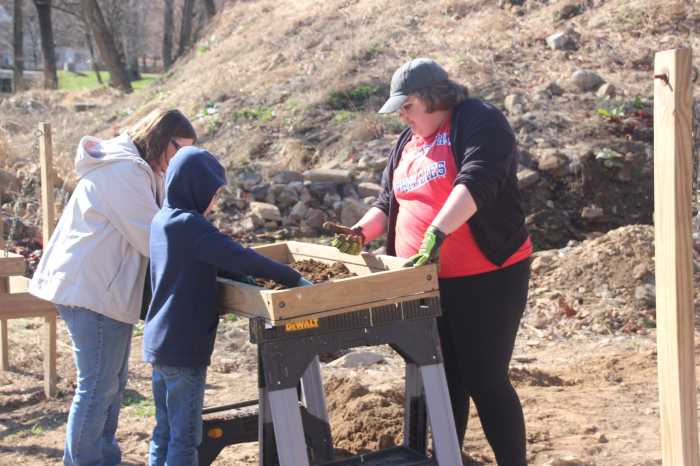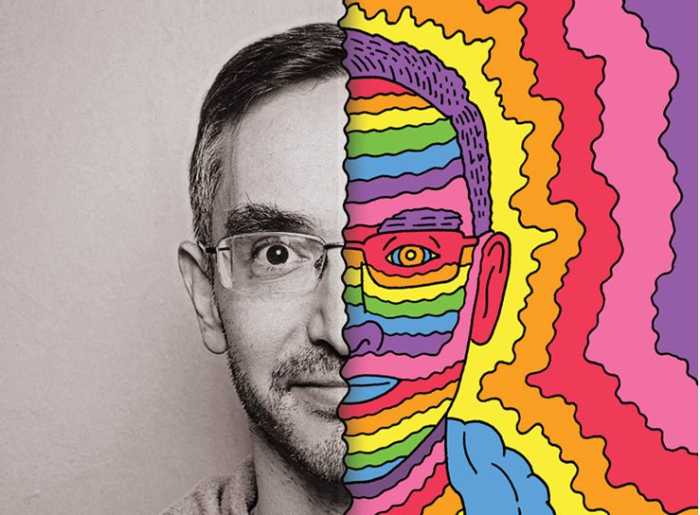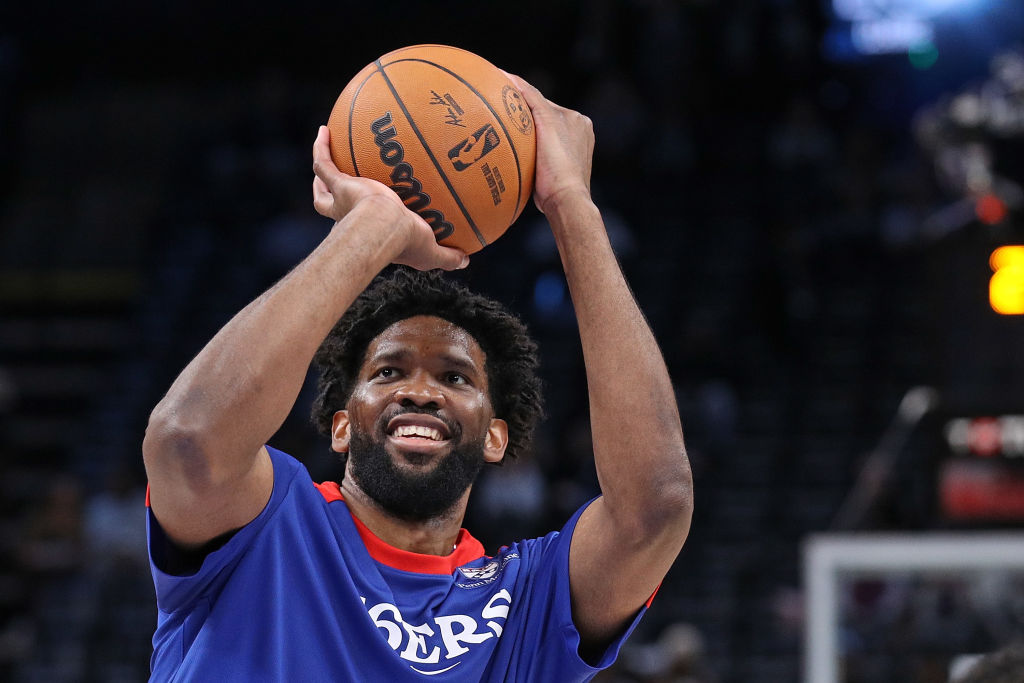Metro Philadelphia and 2PuntosLocalNews are collaborating to produce a series highlighting second- and third-generation Latines in Philadelphia.
There is no single way to be Latine in Philadelphia. For many second- and third-generation Latine, their identity lies in preserving Spanish across generations, while for others, language is not what defines them. But that doesn’t make them any less Latine. On the contrary, they demonstrate their Latinidad in other ways, like the neighborhood they choose to call home.
El Centro de Oro, also known as the heart of Philadelphia’s Latino community, is one of those neighborhoods. Its population is predominantly Puerto Rican, and its culture is palpable as soon as you set foot in the neighborhood.
There you will also find Norris Square, a neighborhood brimming with cultural vibrancy and traditions where, according to a report by Penn State Extension and the Penn State Center for Economic and Community Development, 49% of its residents spoke Spanish and 78% of them were proud of their neighborhood’s ethnic diversity.
Here are the stories of four Latines who express their identity in different ways in a multicultural city where 16% of the population identifies as Latino.
Proud Latina, but Americanized
Cesali Morales has lived in the Norris Square neighborhood for over 10 years and is the current Director of Community Organization and Public Programs at Tookany/Tacony-Frankford Watershed. Her mother is Puerto Rican and her father is Italian American. Although her mother spoke Spanish to her at home, Morales never stuck with it.
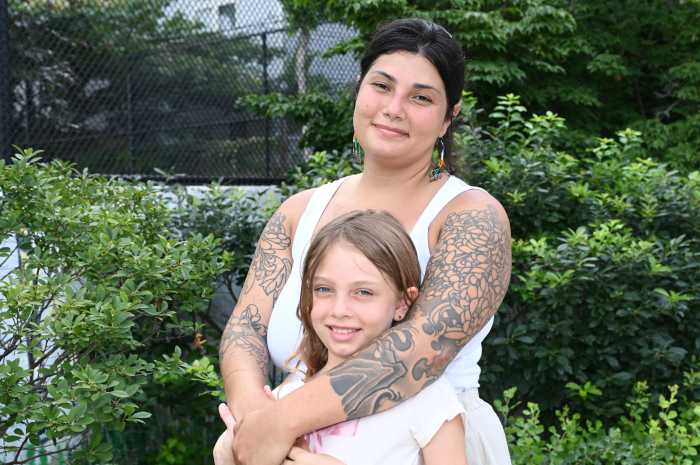
As a second-generation Latine in Philly, she describes herself as “very American in a lot of ways.”
“Spanish is one of those things that break my heart open,” added Morales, who was born in South Florida.
However, Morales acknowledges that her daughter needs to know Spanish as part of her identity and she has made sure that she attends classes and camps that promote diversity and Spanish in places such as Taller Puertorriqueño.
Spanish as resistance
Alyssa Reynoso-Morris is a bilingual children’s book author, community organizer, and mother of three. She is of Dominican and Puerto Rican descent and identifies as Afro-Latine and queer. Her work is her form of resistance to promote Spanish and Latine culture in children.
She was born in New York and has lived in Philadelphia for 17 years. For her, Spanish is the most beautiful gift she inherited from her mother and abuela, which she is now consciously passing on to her children.
“I think for a very long time, I felt connected to being Latina through the language […] But then I realized, I think what connects me to Latinidad is really this spirit of resilience that our community has,” she added.
As a second-generation Latine, Reynoso-Morris has no doubt that “there is a lot of racism and transphobia in our Latino community.” But she is clear that there is no place for that in her household and prefers to focus on the good things she was taught about her Latinidad.
The Revenge of the Pastelillo
Erica Daza is a mother of three and one of the founders of Somos, a Spanish Immersion Summer Camp in Philadelphia. Her life and work are completely dedicated to teaching Latin American history and immersing children into the Spanish language.
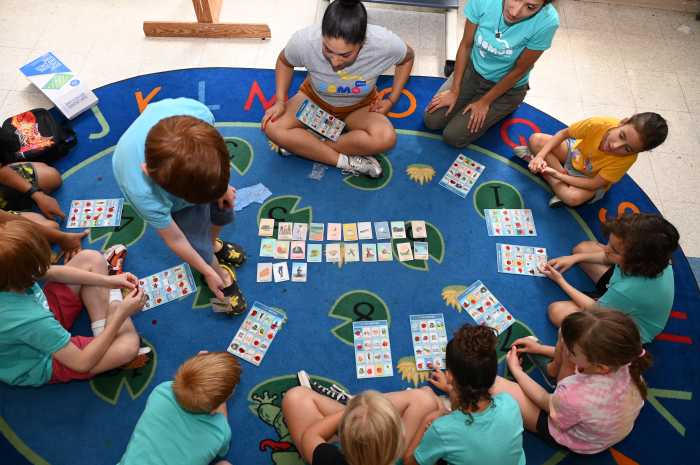
Her inspiration to start Somos came from her own experience with the lack of Spanish educational programs in Philly. Like her, there were many other parents who were looking for a place where their children wouldn’t lose the Spanish they learned in their household.
“Part of being Latino is the language,” Daza said.
Born in Maryland to Colombian parents, Daza confesses that maintaining Spanish with her children is the hardest thing for her.
Her children show their Latine heritage in very different ways and depending on their interest. For example, her youngest son was fascinated by the taste of pastelillo, a Puerto Rican street food staple. He was so obsessed that he began to write a story in which pastelillo becomes a superhero character who saves people from evil. The story is called “The Revenge of Pastelillo.”
This is the result of Daza’s efforts to instill pride in her children for being Latine from an early age. For her, consistency is key.
Daza is part of the second generation and has been living in Philadelphia for over 20 years.
Call for unity
For artist Thomas Delphi, who is currently the Membership and Gifts Coordinator at the Penn Museum of Archaeology and Anthropology, being born in the United States to Nuyorican parents feels like being torn between two cultures that sometimes coexist and sometimes don’t. When he visits Puerto Rico, people don’t see him as Puerto Rican. But when he’s in the United States, people even ask him if he’s an American citizen, which reflects a lack of knowledge about Puerto Rico’s history as an American territory.
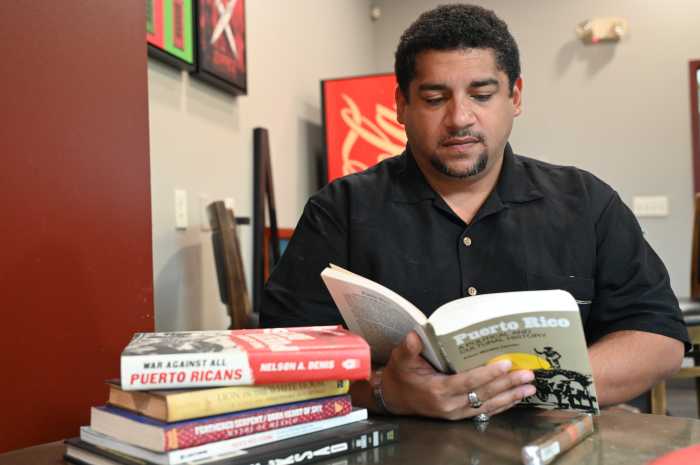
Both of his parents lived most of their lives between New York, where Thomas was born, and Puerto Rico. However, he is completely detached from Spanish.
Thomas has lived in Philadelphia for almost 8 years and was the founder of The Nerdtino Expo, the first East Coast Latine comic book convention. As a third-generation Latino, Thomas admits that the Latine and Puerto Rican community in Philly could be much bigger, stronger, and united.
“We need to think bigger of ourselves,” Thomas concluded.

Metro Philadelphia is one of more than 25 news organizations powering the Philadelphia Journalism Collaborative. We do solutions reporting on things that affect daily life in our city where the problem and symptoms are obvious, but what’s driving them isn’t. Follow us at @PHLJournoCollab
¿Cómo se integran las segundas y terceras generaciones latine en la cultura de Filadelfia?
Por Némesis Mora
No existe una sola forma de ser latine en Filadelfia. Para muchos latinx de segunda y tercera generación, su identidad se basa en preservar el español a través de las generaciones, mientras que para otros, el idioma no es lo que los define. Pero eso no los hace menos latine. Todo lo contrario, expresan su latinidad de otras formas, como el barrio que eligen como hogar, lo cual es un esfuerzo consciente por mantenerse cerca de sus raíces.
El Centro de Oro, también conocido como el corazón de la comunidad latina de Filadelfia, es uno de esos barrios. Su población es predominantemente puertorriqueña y su cultura es palpable tan pronto pones un pie en el barrio.
Allí también se encuentra Norris Square, un barrio lleno de vitalidad cultural y tradiciones. Según un informe de Penn State Extension y el Penn State Center for Economic and Community Development, el 49% de los residentes de Norris Square hablaban español, mientras que el 78 % dijeron sentirse orgullosos de la diversidad étnica de su barrio.
A continuación, las historias de cuatro latine que expresan su identidad de muchas maneras diferentes en una ciudad multicultural donde el 16% de la población se identifica como latine.
Latina orgullosa, pero americanizada
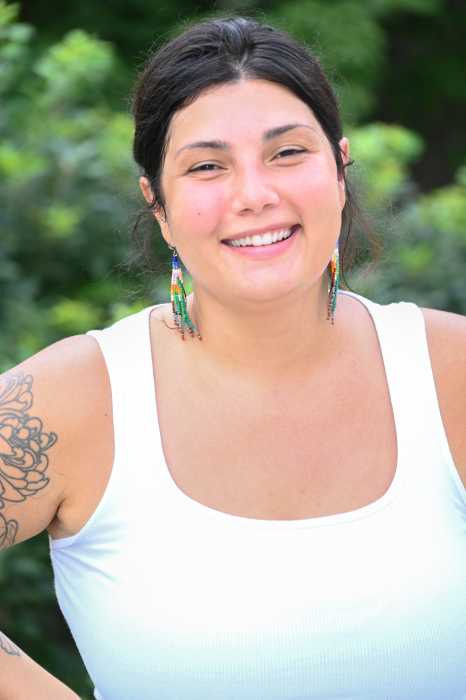
Cesali Morales vive en el barrio de Norris Square desde hace más de 10 años y es la actual directora de Organización Comunitaria y Programas Públicos en Tookany/Tacony-Frankford Watershed. Su madre es puertorriqueña y su padre es italoamericano. Aunque su madre le hablaba español en casa, Morales nunca lo aprendió.
Como latina de segunda generación en Filadelfia, se describe a sí misma como “muy americana en muchos aspectos”.
“El español es una de esas cosas que me rompen el corazón”, añadió Morales, nacida en el sur de Florida.
Sin embargo, Morales reconoce que su hija necesita saber español como parte de su identidad y se ha asegurado de que asista a clases y campamentos que promueven la diversidad y el español en lugares como el Taller Puertorriqueño.
El español como resistencia
Alyssa Reynoso-Morris es autora de libros infantiles bilingües, organizadora comunitaria y madre de tres hijos. Es de ascendencia dominicana y puertorriqueña y se identifica como afrolatine y queer. Su trabajo es su forma de resistencia para promover el español y la cultura latine en la niñez.
Nació en Nueva York y lleva 17 años viviendo en Filadelfia. Para ella, el español es el regalo más bonito que heredó de su madre y su abuela, y que ahora transmite conscientemente a sus hijos.
“Creo que durante mucho tiempo me sentí conectada con mi identidad latina a través del idioma […] Pero luego me di cuenta de que lo que realmente me conecta con la latinidad es el espíritu de resiliencia que tiene nuestra comunidad”, dijo.
Como latina de segunda generación, Alyssa no titubeó en confesar que “hay mucho racismo y transfobia en nuestra comunidad latina”. Pero tiene claro que eso no tiene cabida en su hogar y ha optado por centrarse en las cosas buenas que le enseñaron sobre su latinidad.
La venganza del pastelillo
Erica Daza es madre de tres hijos y una de las fundadoras de Somos, un campamento de verano de inmersión en español en Filadelfia. Su vida y su trabajo están completamente dedicados a enseñar la historia de América Latina y a sumergir a los niños en el idioma español.

Su motivación para crear Somos vino de su propia experiencia ante la falta de programas educativos en español en Filadelfia. Al igual que ella, había muchos otros padres que buscaban un lugar donde sus hijos no perdieran el español que habían aprendido en la casa.
“Parte de ser latino es el idioma”, afirmó Daza.
Nacida en Maryland de padres colombianos, Daza confiesa que mantener el español con sus hijos es lo más difícil para ella.
Sus hijos muestran su herencia latina de maneras muy diferentes y según sus intereses. Por ejemplo, su hijo menor quedó fascinado con el sabor del pastelillo, un clásico de la comida callejera puertorriqueña. Estaba tan obsesionado que empezó a escribir una historia en la que el pastelillo se convierte en un superhéroe que salva a la gente del mal. La historia la tituló ‘La venganza del pastelillo’.
Este es el resultado de los esfuerzos de Daza por inculcar a sus hijos el orgullo de ser latinos desde una temprana edad. Para ella, la constancia es fundamental.
Daza forma parte de la segunda generación y lleva más de 20 años viviendo en Filadelfia.
Llamado a la unidad
Para el artista Thomas Delphi, actual coordinador de membresías y donaciones en el Museo de Arqueología y Antropología de la Universidad de Pensilvania, haber nacido en Estados Unidos de padres nuyoricans es como estar dividido entre dos culturas que a veces coexisten y otras no. Cuando visita Puerto Rico, la gente no lo reconoce como puertorriqueño. Pero cuando está en Estados Unidos, la gente incluso le pregunta si es ciudadano americano, lo que refleja un desconocimiento de la historia de Puerto Rico como territorio estadounidense.
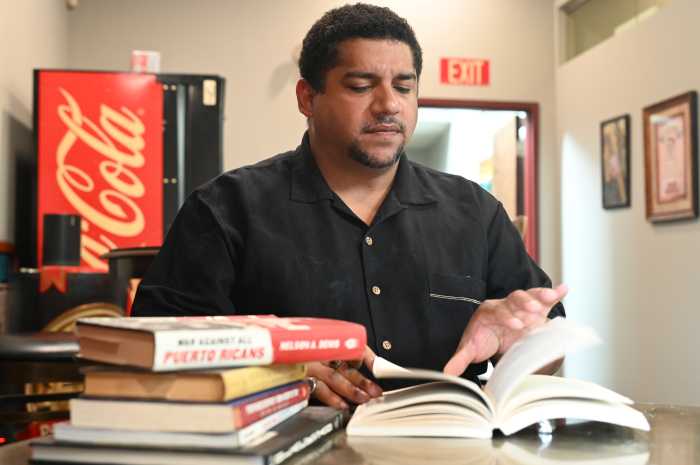
Sus dos padres vivieron la mayor parte de su vida entre Nueva York, donde nació Thomas, y Puerto Rico. Sin embargo, él está completamente desligado del español.
Thomas lleva casi ocho años viviendo en Filadelfia y fue el fundador de The Nerdtino Expo, la primera convención de cómics latinos de la costa este. Como latino de tercera generación, Thomas admite que la comunidad latina y puertorriqueña de Filadelfia podría ser mucho más grande, fuerte y unida.
“Tenemos que pensar en grande”, concluyó Thomas.




